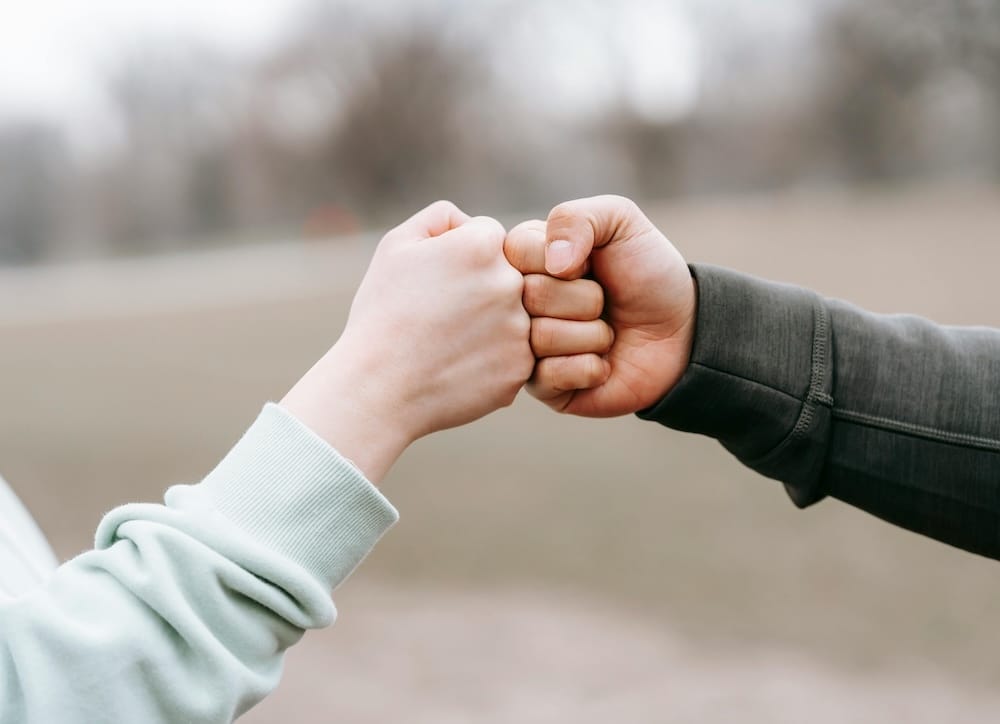
Dispatch from Diane’s Desk
When I think about allyship, I think about one colleague in particular and her courageous act.
It was the early 1990s, in Chicago. I was in my late 20s and had just landed my first job ever in the United States. It was a BIG move for me and my young family -all the way from South Africa. The company sponsored my green card application because I had a very specialized skill that one of their key clients really needed.
One day, a colleague pulled me aside. She’d noticed something peculiar - while the company was billing the client for my services at three times her billable rate, I was actually earning less than half of what she made. And she was offended on my behalf!
Of course, she didn’t have to say anything to me. But, she did. And, she encouraged me to ask for a raise immediately.
I finally did it. One day, I worked up the courage to advocate for myself and requested a justified salary increase. But, when I brought it up with my manager, the answer was no. He said I should be patient. That I should be happy because they were sponsoring my immigration status. To be honest, I was scared. I was vulnerable.
I was frightened of what a change in employment status could mean for me and my family. So, even though I knew that the application's legal fees were far lower than fair compensation would have been -- I didn’t broach the subject again.
And, I never told that colleague what happened. I wish I had. But even though the raise didn’t materialize, her allyship and the lesson remained.
I’ll never forget her act of kindness. It helps me focus on how I can show up as an ally for others.
Warmly,
Diane
The Importance of Allyship in Uncertain Times
In my coaching of underrepresented leaders, I’m finding that they need support, now, more than ever. When social norms begin to collapse and economic outcomes become increasingly uncertain, the already marginalized are the first to know it. Their lives are already experienced on the edge. So, when the edge itself begins to crumble, they are directly in the impact zone.
Why Allyship Matters Now
We’re seeing this now in the form of budget cuts, DEI backlash, and layoffs that have disproportionately impacted Black women and people of color. Those who still have jobs continue to feel threatened, as if their employment hangs in the balance. They are unsure if their jobs will still be there if they speak out against injustice. Bystanders who would normally have said something against discriminatory or dysfunctional behaviors feel guilty. They want to speak up, but are afraid and sometimes, even silenced. Fear has fractured team cohesion, and acquiescence has replaced rebellion.
In times when the future is unclear, when our economic stability is threatened by social and economic forces well beyond our control, allyship is one of the only stabilizing forces that can help improve the situation. Being an ally builds trust for other people and trust for systems. It can help people feel included and encourage psychological safety for the marginalized. Stepping up to be an ally is more important in times of uncertainty than it has ever been.

Be an Ally if You Can!
What Allyship Is
So, what is allyship? Being an ally is about providing active and consistent support for people from underrepresented communities. With a foundation in empathy, humility and a willingness to make space for others, it isn’t always easy –but it’s always the right thing to do.
Here’s what allyship looks like – it’s actively listening and using your voice to amplify others. It’s taking action both behind the scenes and in public to support underrepresented allies. It’s about recognizing injustice when you see it and doing something about it. More than anything else, it’s about being willing to try. Willing to learn. Willing to listen.
What Allyship Isn’t
But, more specifically, what isn’t it? Allyship is not about centering yourself as the hero or the savior. This helps no one and only uplifts your own ego. And, it’s more than being a performative supporter when the camera’s on -it’s about what you do behind the scenes when no one is watching.
Practical Ways to Be an Ally
The good news is that it’s not usually that hard to do. There are practical ways that you can be an ally in your everyday life.
Speak up in meetings when other voices have been overlooked or interrupted and shine a bright light on them.
Amplify the good ideas and achievements of your underrepresented colleagues.
Share your platform and your network with others who could use the amplification.
Don’t just assume your friends or colleagues are doing okay, proactively ask them if they are -and find out what kind of support you can give them that would be most helpful.
In these incredibly challenging times, it is the network of interconnection with community, with friends, with family, and with colleagues with which we have shared so much over the years, that will sustain us. How we show up for them is important. It’s what matters. So, consider how you can be a better ally.
